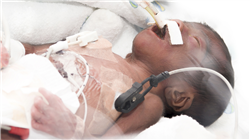University certificate
The world's largest faculty of medicine”
Description
Thanks to this 100% online Postgraduate certificate, you will acquire in-depth knowledge and practical skills on the identification and management of poisoning and endocrinological disorders in children"

With increased exposure to toxic substances in the environment, from household chemicals to medications, Pediatric specialists face unique challenges in the identification and management of Acute and Chronic Poisoning. In addition, understanding how these substances can affect the developing Endocrine System in children is critical to ensure effective treatment and minimize long-term sequelae.
This Postgraduate certificate was born, thanks to which physicians will recognize the common signs and symptoms of exposure to toxins and poisoning in children, as well as how to manage acute complications of endocrinological disorders. In addition, emphasis will be placed on the use of laboratory and diagnostic techniques to evaluate and monitor both poisoning and endocrinological disorders, allowing for a comprehensive approach to patient care.
It will also provide the tools to coordinate care with pharmacists and toxicologists, therefore optimizing detoxification therapy and the use of antidotes in emergency situations. Professionals will also be specialized to identify and treat endocrinological emergencies, such as Hyperglycemic Crisis and Adrenal Insufficiency, in a timely manner, therefore improving patient care and outcomes.
Finally, a collaborative, team-based approach will be promoted, recognizing that optimal patient care in toxicologic and endocrinologic emergencies requires effective coordination among various health care professionals. In this regard, this collaborative approach will ensure comprehensive and personalized care, which significantly improves patient outcomes in the PICU.
In this scenario, TECH has created a comprehensive online program, designed to adapt to the individual needs of students, eliminating the need to attend a physical location or follow fixed schedules. In addition, it is supported by the innovative Relearning methodology, which is based on the repetition of key concepts to ensure an optimal and natural understanding of the contents.
You will effectively coordinate care with other specialists, such as pharmacists and toxicologists, to ensure a comprehensive and optimized approach for each patient. With all the TECH quality guarantees!"
This Postgraduate certificate in Toxicology and Endocrinology in the PICU contains the most complete and up-to-date scientific program on the market. The most important features include:
- The development of practical cases presented by experts in Toxicology and Endocrinology in the PICU
- The graphic, schematic and eminently practical contents with which it is conceived gather scientific and practical information on those disciplines that are indispensable for professional practice
- Practical exercises where the self-assessment process can be carried out to improve learning
- Its special emphasis on innovative methodologies
- Theoretical lessons, questions to the expert, debate forums on controversial topics, and individual reflection assignments
- Content that is accessible from any fixed or portable device with an Internet connection
You will address ethical and legal aspects in the management of toxicological and endocrinological cases in children, preparing you to face ethical dilemmas and follow practices based on ethical and legal standards"
The program’s teaching staff includes professionals from the sector who contribute their work experience to this specializing program, as well as renowned specialists from leading societies and prestigious universities.
The multimedia content, developed with the latest educational technology, will provide the professional with situated and contextual learning, i.e., a simulated environment that will provide immersive education programmed to learn in real situations.
This program is designed around Problem-Based Learning, whereby the professional must try to solve the different professional practice situations that arise during the course. For this purpose, students will be assisted by an innovative interactive video system created by renowned and experienced experts.
You will recognize the common symptoms of toxin exposure and poisoning in children, as well as apply laboratory and diagnostic techniques to evaluate and monitor both poisoning and endocrine disorders"

You will participate in research studies and case analysis to advance knowledge and practice in pediatric toxicology and endocrinology through an extensive library of multimedia resources"
Syllabus
From identifying signs and symptoms of toxin exposure and poisoning in children, to the management of acute complications of endocrine disorders, the program will cover topics crucial to comprehensive patient care in this setting. In addition, laboratory and diagnostic techniques will be used to evaluate and monitor poisoning and endocrine disorders, as well as strategies for coordinating care with other health care professionals, such as pharmacists and toxicologists.

You will cover endocrinological emergencies, such as Hyperglycemic Crisis and Adrenal Insufficiency, participating in research studies to advance this crucial field"
Module 1. Toxicology and Endocrinology in the Pediatric Intensive Care Unit
1.1. Diabetic Ketoacidosis
1.1.1. Underlying Causes of Diabetic Ketoacidosis
1.1.2. Diagnosis of Diabetic Ketoacidosis by Interpretation of Clinical Symptoms and Laboratory Results
1.1.3. Effective Treatment Strategies: Management and Prevention of Diabetic Ketoacidosis in Patients with Diabetes
1.2. Electrical Trauma Injuries
1.2.1. Types of Electrical Trauma Injuries according to Mechanism of Action and Severity
1.2.2. Immediate and Long-term Signs and Symptoms Associated with Electrical Trauma Injuries
1.2.3. First Aid and Medical Treatment Protocols for Victims of Electrical Trauma
1.3. Alterations in Water-electrolyte Metabolism
1.3.1. Functions of the Main Electrolytes in the Body Importance for Water-electrolyte Balance
1.3.2. Common Causes and Clinical Signs of Disturbances in Water-Electrolyte Balance
1.3.3. Management of Disturbances in Water-electrolyte Metabolism by Appropriate Therapeutic Interventions
1.4. Acute Adrenal Insufficiency
1.4.1. Risk Factors and Precipitating Causes of Acute Adrenal Insufficiency
1.4.2. Characteristic Clinical Signs and Symptoms of Acute Adrenal Insufficiency for Early Diagnosis
1.4.3. Urgent Management Strategies for the Treatment of Acute Adrenal Insufficiency: Cortisol Replenishment
1.5. Disorders of the Thyroid Gland
1.5.1. Disorders of the Thyroid Gland, Hypothyroidism and Hyperthyroidism: Clinical Features and Laboratory Findings
1.5.2. Clinical Implications of Autoimmune Thyroid Disorders: Disease and Hashimoto's Thyroiditis on the Physiology and Well-being of the Patient
1.5.3. Diagnostic and Therapeutic Approach to Thyroid Disorders: Medical, Surgical Treatment and the Management of Complications
1.6. Inhalation Injuries
1.6.1. Types of Inhalation Injuries: Thermal, Chemical and Smoke Inhalation Injuries and their Mechanisms of Injury
1.6.2. Immediate and Long-term Signs and Symptoms Associated with Inhalation Injuries: Early and Accurate Diagnosis
1.6.3. Treatment and Management Strategies for Patients with Inhalation Injuries: Respiratory Support and Specific Therapies for Toxic Agents
1.7. Inherited Metabolic Diseases
1.7.1. Principles of Genetics and Inheritance of Metabolic Diseases with Identification of Commonly Affected Metabolic Pathways
1.7.2. Clinical Signs and Symptoms of the Inherited Metabolic Diseases: Early Diagnosis
1.7.3. Management Strategies and Specific Treatment for Inherited Metabolic Diseases: Special Diets, Enzyme Supplementation and Gene Therapies
1.8. Antidotes and their Use in Pediatrics
1.8.1. Specific Antidotes in Pediatrics for the most Common Poisoning: Mechanisms of Action
1.8.2. Indications, Dosage and Routes of Administration of Antidotes in the Management of Acute Poisoning in Children
1.8.3. Protocols of Action in Emergency Situations with the Use of Antidotes: Pharmacokinetic and Pharmacodynamic Particularities in the Pediatric Population
1.9. Carbon Monoxide Poisoning
1.9.1. Pathophysiology of Carbon Monoxide Poisoning: how it Affects the Body Focusing on its High Affinity for Hemoglobin and the Resulting Systemic Effects
1.9.2. Clinical Signs and Symptoms of Carbon Monoxide Poisoning: Acute and Potential Long-term Neurological and Cardiovascular Health Effects
1.9.3. Treatment Strategies for Carbon Monoxide Poisoning: Administration of 100% Oxygen and Hyperbaric Therapy in Appropriate Cases
1.10. Acute Poisoning
1.10.1. Toxic Agents Responsible for Acute Poisoning: Drugs, Industrial and Household Chemicals and Natural Toxins
1.10.2. Clinical Signs and Symptoms associated with Acute Poisoning for Rapid and Accurate Diagnosis
1.10.3. Initial Management of Acute Poisoning: Stabilization of the Patient, Decontamination Techniques and Administration of Specific Antidotes when Indicated

A unique training experience, key and decisive to boost your professional development"
Postgraduate Certificate in Toxicology and Endocrinology in the PICU
The Postgraduate Certificate in Toxicology and Endocrinology In the PICU of TECH Global University is a unique opportunity to acquire specialized knowledge in the management of emergencies related to poisoning and hormonal imbalances in infants. This program is offered entirely in online classroom modality, which allows health professionals to update their skills from anywhere and at any time. As an institute we excel in offering quality education relevant to the medical field. Our course is designed for physicians interested in deepening their understanding and competence in pediatric toxicology and endocrinology, with a practical and up-to-date approach. Course content ranges from initial evaluation of poisoning cases to advanced management of endocrine complications in critically ill pediatric patients. Participants will learn how to effectively identify and treat poisonings by various agents, as well as how to manage hormonal imbalances that affect the health status of children in the ICU.
Specialize in Pediatric Toxicology & Endocrinology
Our teaching team is composed of experts in pediatric toxicology and endocrinology, who not only have in-depth theoretical knowledge, but also vast practical experience in the field. This combination ensures that students acquire not only academic knowledge, but also practical skills and evidence-based management strategies. Upon completion of the Postgraduate Crtificate, participants will be better prepared to face complex clinical challenges and provide specialized care to pediatric patients in critical situations. This program represents a valuable investment in professional development and an opportunity to make a significant difference in the health and well-being of children. In short, this degree is the perfect choice for healthcare professionals looking to enhance their professional profile in a key area of pediatrics. With accessible online classes and a comprehensive approach, this course guarantees high quality training that will positively impact clinical practice and pediatric patient care. Take advantage and enroll today!







